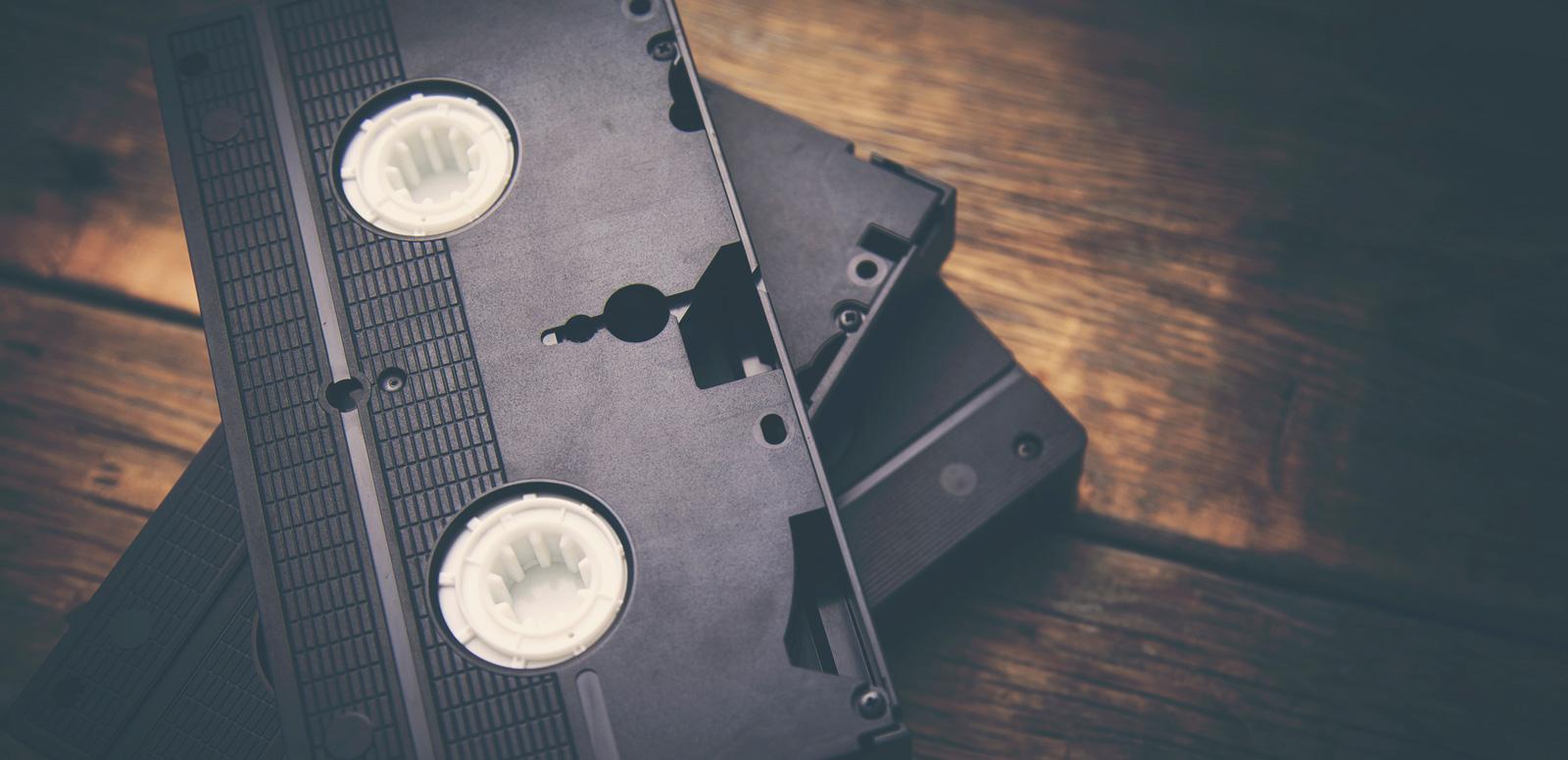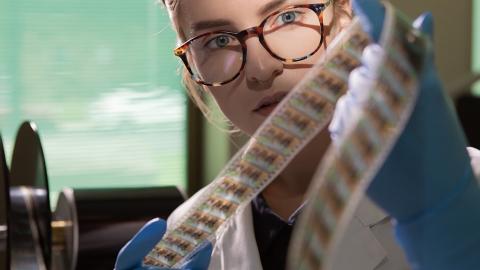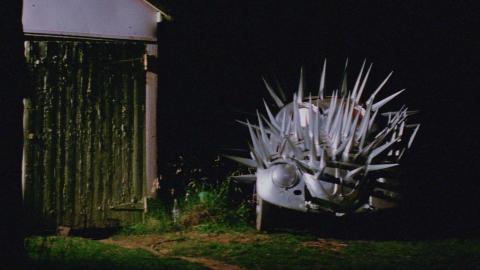

Caring for Video
Caring for Video
Introduction
Videotapes are composed of a plastic polyester backing onto which a layer of magnetic material (metal or oxide) and binder is coated. The proper care of videotape relies upon looking after both the base and the magnetic layer in which the image and sound information is contained.
How should you store tapes?
Heat and humidity are the two greatest enemies of videotape. The recommended storage conditions for videotape are 18°C-24°C with a relative humidity of between 35 per cent and 45 per cent i.e. an even temperature with low humidity. Satisfying these conditions in a typical domestic environment is difficult. However, in a building with two or more levels, the lower or mid floors are generally cooler than the top floor.
Storage places to be avoided include:
- directly on concrete floors (susceptible to spills and water damage and high humidity)
- attics or cellars (high temperatures and high humidities)
- adjacent to bathrooms and laundries, or other areas where steam water is found
- next to the VCR in an enclosed cabinet (high temperatures)
You should always return the tapes to their containers when you have finished using them and store the containers in an upright position. Storing the containers this way helps prevent damage to the edge of the tape. If several containers are stacked horizontally on top of each other the plastic cassettes can warp and the VCR may not accept the tape.
It is also a good idea to spool tapes at low speed or play from start to finish before storage as this will ensure that the tape is correctly wound inside the cassette.
What extra precautions should you take?
Do not place your camcorder and/or tapes in a bag or holder with containers of liquids, food or other materials which could contaminate the video materials should the container break.
If you are in particularly extreme climatic areas, e.g. tropics or snow, allow time for your camcorder and tapes to warm up or cool down before use. A rapid change from an air conditioned room to tropical heat and humidity, or from a heated room to the cold and damp of a mountain environment can clog video heads and jam tapes.
Can electrical appliances damage tapes?
Only very strong magnetic fields will damage videotapes, the stray magnetic fields around most appliances are too weak to do damage.
Normal house wiring is usually not a problem but high voltage power lines and lightening arresters in large buildings can produce dangerous levels of electromagnetic interference.
Security scanners and x-ray equipment aren’t usually harmful, but it is wise to check first.
The most likely articles found in the home that can affect tapes are those with small powerful magnets, such as magnetic flashlights, fridge magnets, small headphones and speaker cabinets.
Will tapes last longer if they are not used?
Not necessarily. Tapes that are rewound or played at least annually to rewind pack stresses may last longer than tapes which are not played at all. However, the more often you play a tape, the greater the likelihood that the tape will be damaged. Copies should be made of frequently used tapes so that a backup exists.
What if a video cassette does not play properly?
If you are sure the problem lies with the tape and not the VCR, get rid of the tape. If the content is important get it copied first. If the tape has started to deteriorate it has the potential to damage the VCR which in turn will damage other tapes. If the problem is with the VCR, professional maintenance must be carried out.
Should you use head cleaning tapes?
Under normal circumstances head cleaning tapes should not be needed. Dirty heads on a VCR show as picture 'dropout’ – either a poor quality picture or not picture at all. If the heads require frequent cleaning there is a problem with the videotapes being played or the environment in which the VCR is being used.
If the heads do need cleaning it is preferable that they be cleaned manually by a trained person. Cleaning tapes should be used only as a last resort as some types can cause premature head wear or damage.
What brand of videotapes are the best?
Major brand name tapes from VCR equipment manufacturers or magnetic products manufacturers are generally of a consistently good quality. Bargain basement tapes should be viewed with suspicion. Conversely high prices do not always buy higher quality.
Do Australian videotapes play on overseas machines?
Sometimes. There are three major international systems:
- PAL – used by Australia, New Zealand, the United Kingdom and most of Europe
- NTSC – used by the USA, Canada and Japan and
- SECAM – used by France and Russia.
Tapes recorded on one system cannot be replayed on another system unless multi-standard VCRs and TV monitors are used. Tapes may be copied through a standards converter to produce a copy for another standard. Companies offering standards conversions operate in most States, however the process is expensive and some loss of quality may occur.
How can I protect my videos from natural disaster?
You should consider safeguarding any videos of great personal importance from extreme hazard, such as household fires or floods, by copying them onto other videos and storing the copies separately. In the event of a flood, evacuate the tapes or store them in a sealed container — try to avoid the tapes becoming wet at all costs. In the event of a fire, evacuate the tapes or bury them in a sealed container.
Please note — The advice given here in regard to the care of video is based on best international experience and the best information available to the NFSA. However, given the different circumstances applying to the condition of any particular video we cannot be responsible for the application of this advice in any particular circumstances. To be sure of the best care of your video you may wish to seek specialist advice.
Download Fire affected video tapes
The National Film and Sound Archive of Australia acknowledges Australia’s Aboriginal and Torres Strait Islander peoples as the Traditional Custodians of the land on which we work and live and gives respect to their Elders both past and present.


